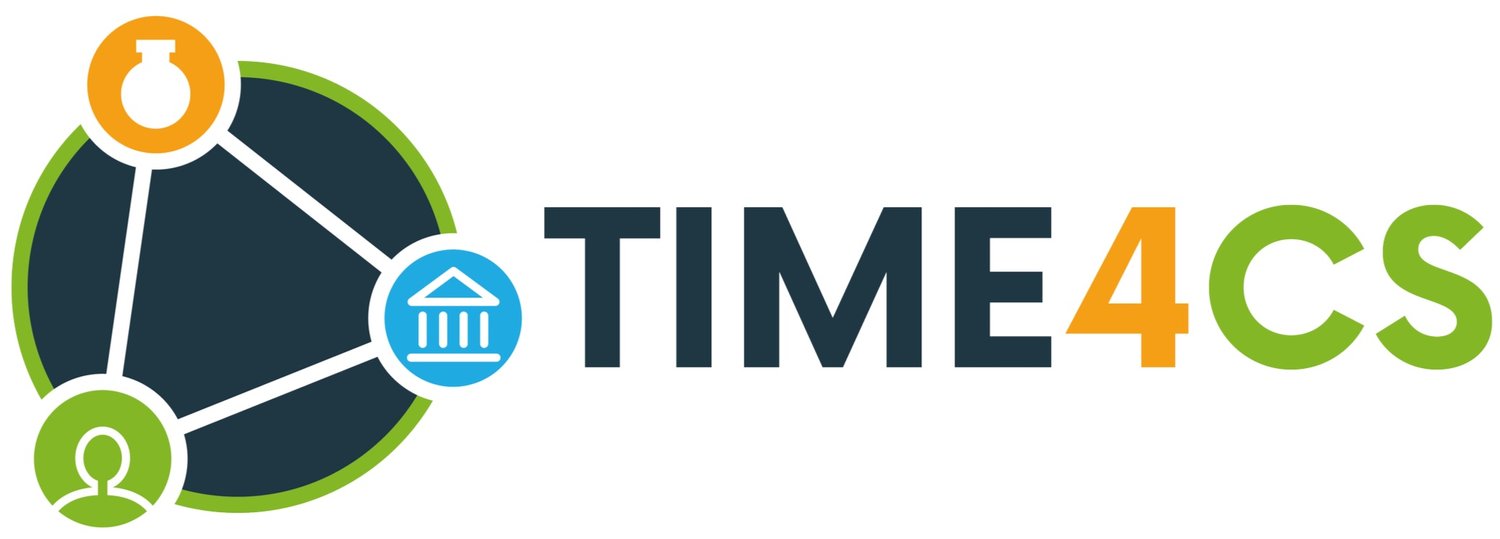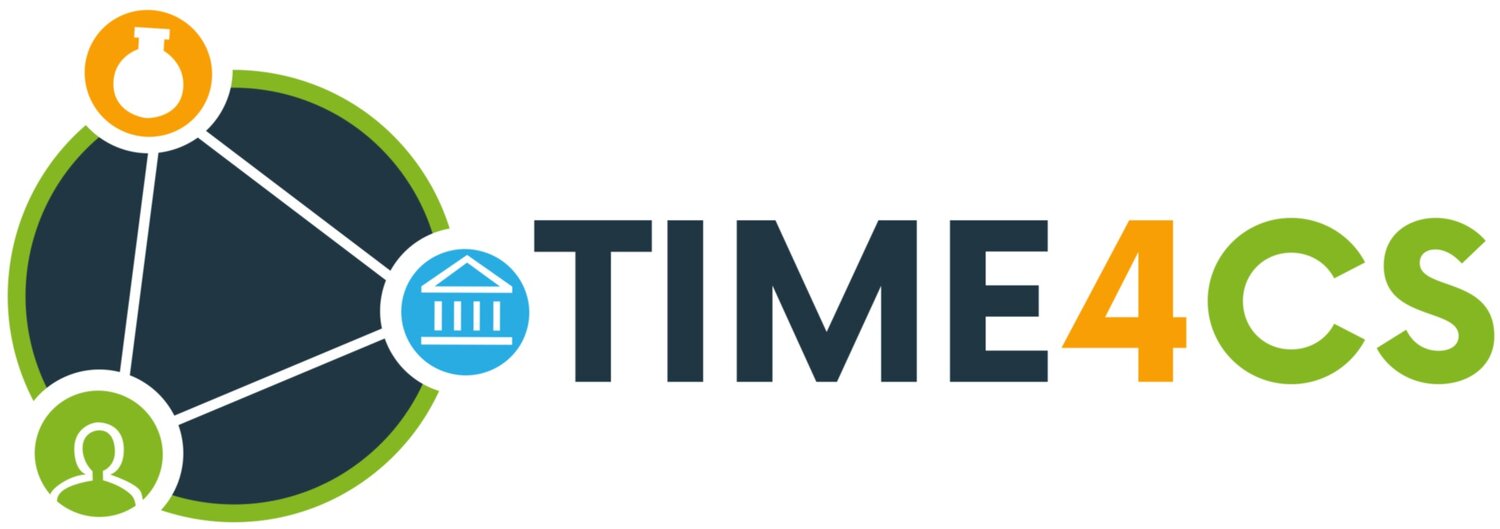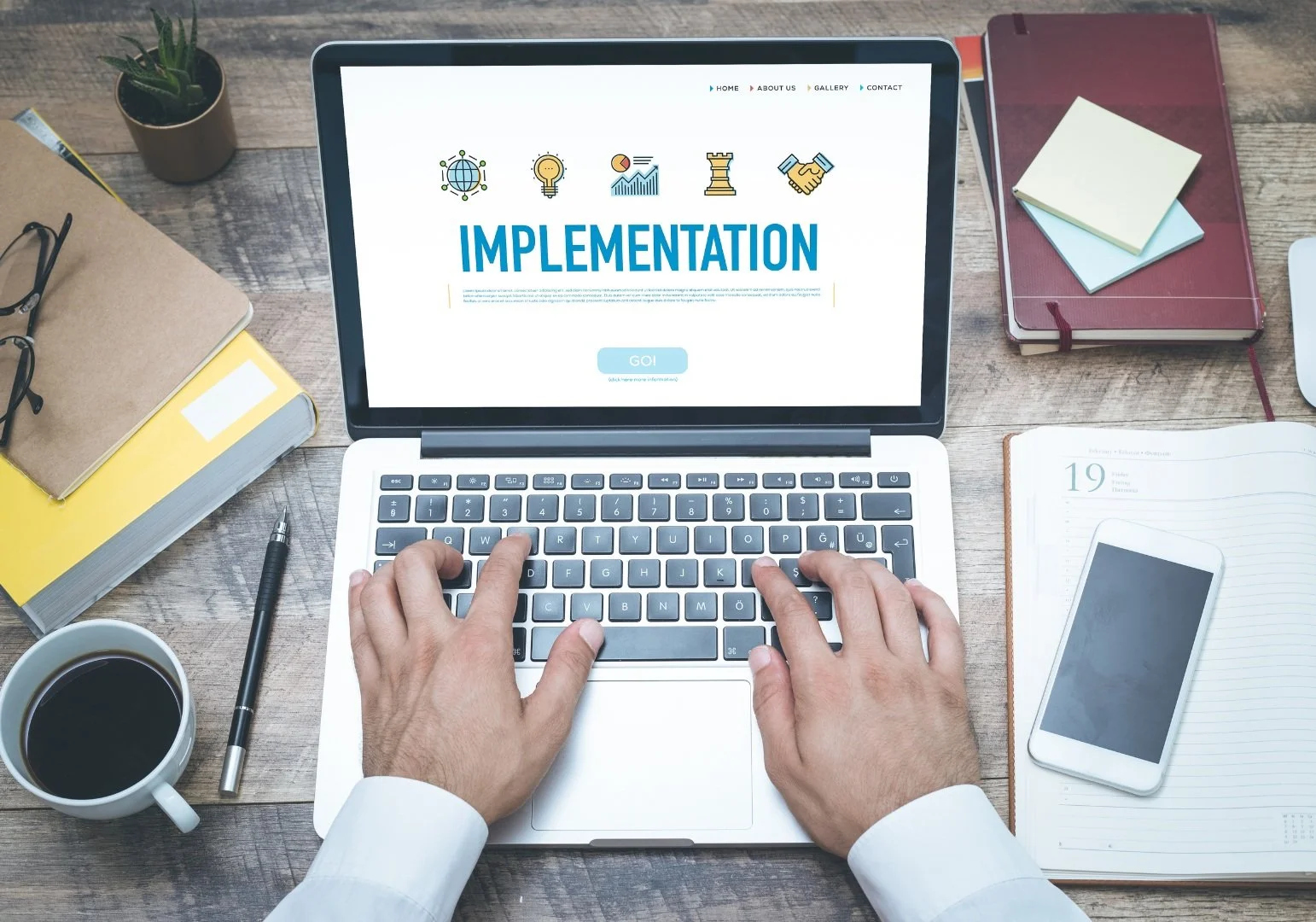The TIME4CS roadmap implementation phase is running with achievements and challenges
The implementation phase of TIME4CS is ongoing since the beginning of December 2021. Over these eight months, the four TIME4CS Implementers (Tyndall, CRG, KTU & UniSR) have been launching and implementing the activities (Grounding Actions, GA) identified in their roadmaps towards institutional change developed in November 2021 and compiled in D2.1 - “Compilation of roadmaps and Grounding Actions for the Implementers - First Version”.
Monitoring and mutual learning
For the implementation phase, TIME4CS set up an ambitious monitoring and mutual learning scheme to assure knowledge exchange while assessing the advancement of the implementation. Designed by the supporting consortium partners (APRE, ESF, ZSI), meetings in the format of “Implementers Forum” or “Implementers Journey” are organised quarterly. These meetings allow to follow up on the activities, achievements and challenges of each implementer while also sharing experiences with other Implementers (Implementers Forum) or with the three consortium partners (UCL, UZH, AU) with comprehensive expertise in CS (Implementers Journey). At these meetings, the four Implementers receive advice and support focusing on the expected impacts of their GAs, defining a timeframe and thus ensuring their sustainable effect beyond the project timespan.
Achievements and challenges of the implementation
16 GAs have already been initiated from the 19 GAs identified in the first version of the roadmaps towards institutional change (November 2021 , see D2.1). The four Implementers are in good track with their own expectations: started seeing the first achievements and facing some challenges.
Interestingly, one notable feature shared by the four Implementers is that they have a strong institutional support from the top-level management of their organisations. However, one of the main challenges for the Implementers has been to involve early-career and senior researchers into the CS activities.
Institutional changes to be effective and sustainable need to be inclusive (Colizzi et al., 2019), i.e. a collective effort that has to involve all players and stakeholders within the involved institution, from leadership to students; therefore, both top-down and bottom-up processes need to be activated and coordinated.
In this sense, it was recommended by the experts and supporting consortium partners that activities to foster a bottom-up approach need to be initiated. Raising awareness is always a useful first step. This can be done by organising seminars or trainings to present the advantages of using the CS approach on their specific research field, by inviting CS champions to talk about their first engagement with CS, or even at a more basic level, by starting to communicate by email or via an institutional newsletter about the ongoing activities and institutional changes expected towards the inclusion of CS.
Another challenge many Implementers are facing is the limited funding available for pure CS projects. One alternative to this is to expand the search not limiting it only to specific CS funding as these sources are normally very scarce. A viable option could be, for example, to apply for funding for specific scientific fields or even for interdisciplinary projects including in the proposal CS as one of the scientific approaches to be used. This strategy goes in line with the eight Open Science ambitions of the EU (EU's open science policy) and, with the launch of the Horizon Europe funding programme, it is even more relevant as CS has become a horizontal pre-requisite of successful proposals, and correspondingly, access to funding.
What are the next steps?
In the autumn of 2022, the four Implementers plan to organise local co-creation workshops with their stakeholders in order to discuss the results of the first year of implementations and possible new GAs or modifications/additions to the existing ones. When organising these workshops, specific attention will be paid to enlarging the network of actors of all Implementers as of the quadruple helix formulation.
An updated version of the TIME4CS Implementer roadmaps will be released in December 2022, under the D2.2 - “Compilation of roadmaps and Grounding Actions for the Implementers – Second Version” which will be published in the TIME4CS Zenodo community.
Stay tuned to the project’s next outcomes!
Follow us in social media - LinkedIn, Twitter, Facebook - and subscribe to our project newsletter [add link].
If you are interested in starting a process of CS institutional change at your organisation, we invite you to discover our Reflection Tool on the integration of CS institutional changes -> TIME4CS Reflection Tool
Author: Eugenia Vilarchao (ESF)


